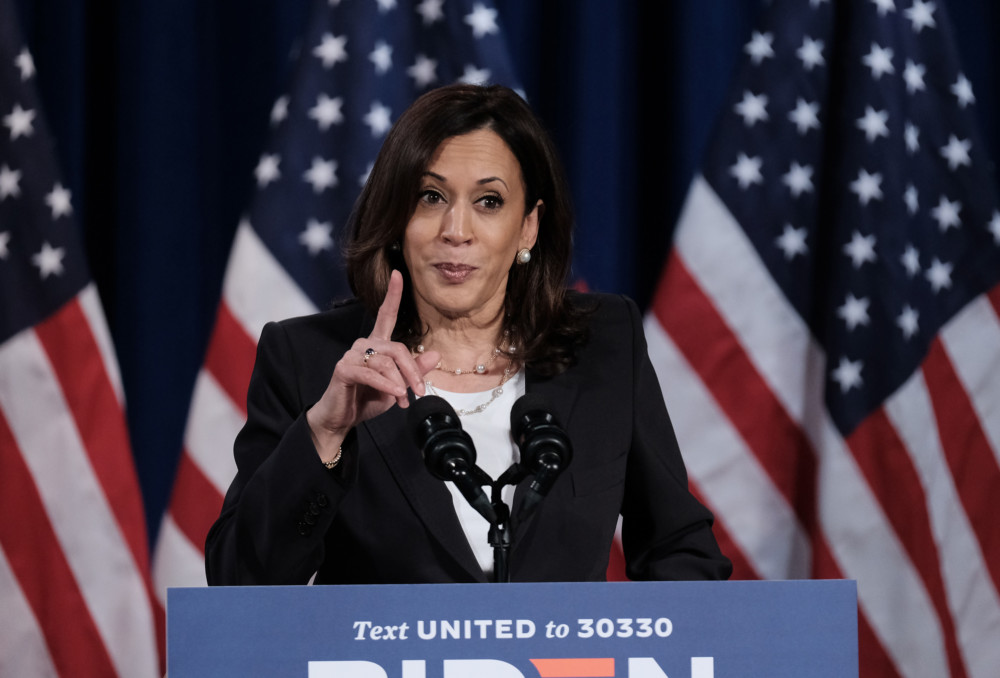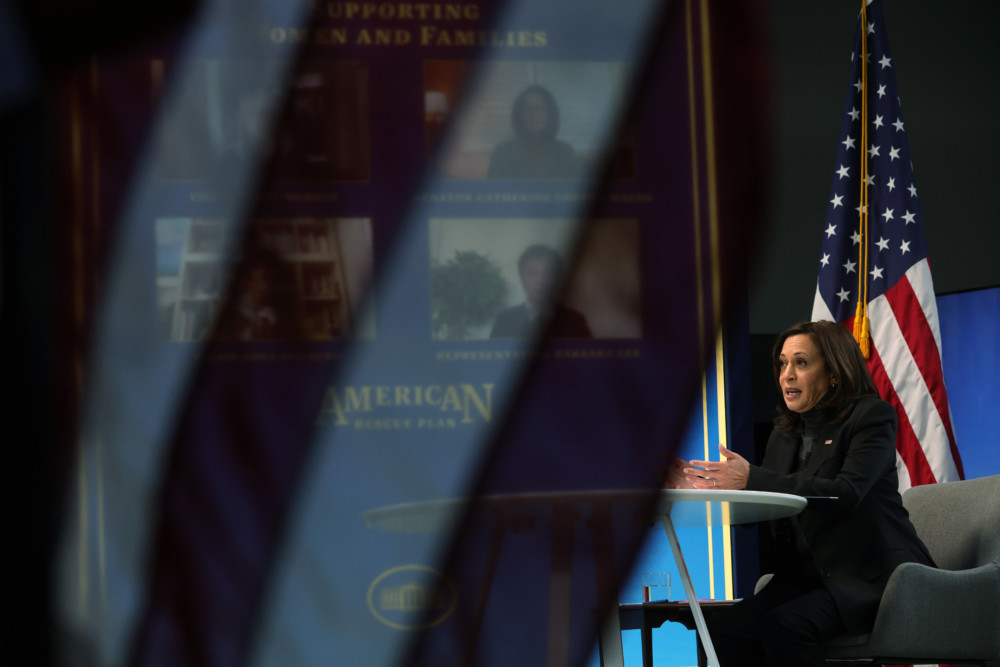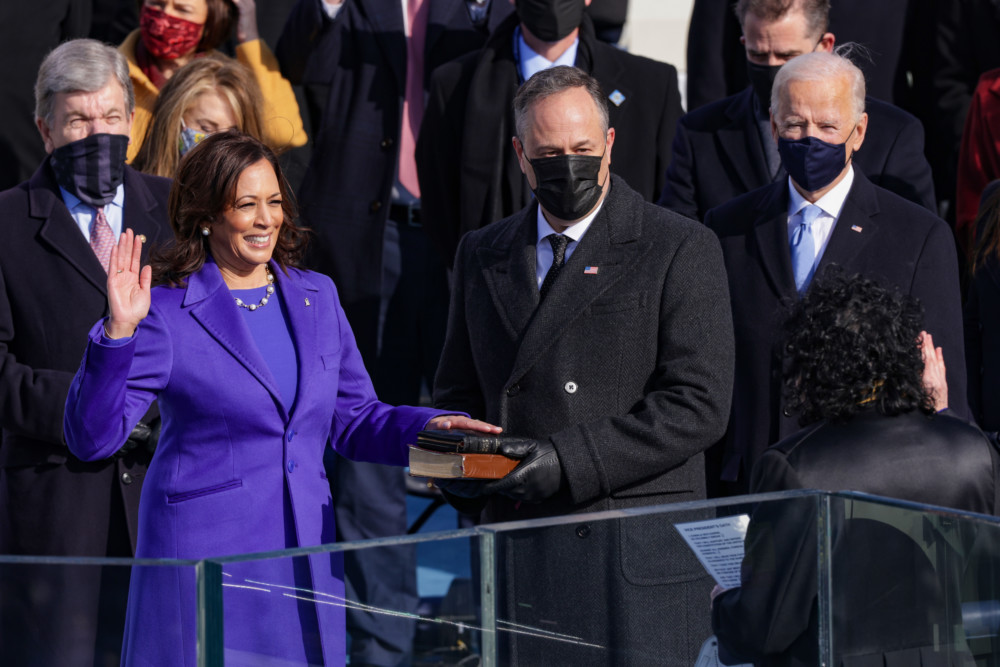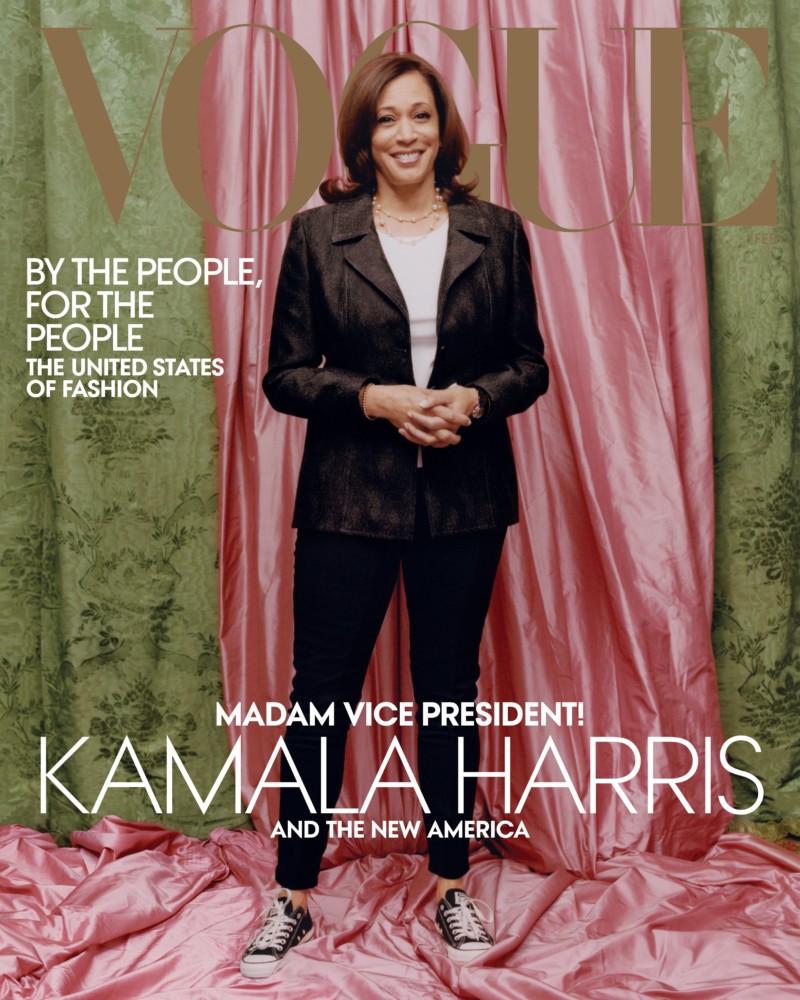By Ernie Suggs
The Atlanta Journal-Constitution
WWR Article Summary (tl;dr) As Ernie Suggs reports, “As a member of the country’s oldest Black sorority, an organization with a deep history of political and social activism, Harris brings to the campaign a built-in base of more than 300,000 college-educated women. Women adept at organizing. Women used to raising money. Women motivated by the fact that their “soror” is making history.”
Atlanta
When Gayle Danley arrived on the campus of Howard University in the fall of 1983 from Atlanta’s Mays High School, she knew she was bright enough. But she wasn’t sure if she belonged.
With about 10,000 students on its campus in Washington, D.C., Howard was one of the largest Black colleges in the country and one of the most elite. Everybody seemed to be a legacy, former class president, homecoming queen or high school valedictorian. It was a place where 400 women, including Danley, would vie for 30 spots to join a sorority.
“There were moments in college where I felt awkward and ungainly. But there were certain people who embodied a certain savviness,” Danley said. “Then there was Kamala. I would sit back and watch and stare at her because she was so womanly, confident and poised.”
Last month, Danley tearfully watched as Kamala Harris, her sorority sister in Alpha Kappa Alpha accepted the Democratic Party’s nomination for vice president.
“Family,” Harris said during her speech, “is my beloved Alpha Kappa Alpha.”
Harris, a U.S. senator who made an early run for president, is the first Black woman to be on a major political party’s ticket. Long considered the backbone of the Democratic party, Black women are expected to play a major role in the 2020 presidential race that pits Joe Biden against incumbent Donald Trump.
As a member of the country’s oldest Black sorority, an organization with a deep history of political and social activism, Harris brings to the campaign a built-in base of more than 300,000 college-educated women. Women adept at organizing. Women used to raising money. Women motivated by the fact that their “soror” is making history.
“It excites me to tears to see her in that element,” said Carolyn G. Randolph, the South Atlantic regional director of the sorority. “It excites me about the voter registration movement. Now, it is up to me to carry the message about voting and the importance of voting. We have to be vigilant and intentional.”
Getting out the vote
Alpha Kappa Alpha, which Harris describes as a major influence in her life, is one of the historically Black sororities and fraternities that make up the Divine 9. With more than a million members, or potential voters, they could be key to pushing Black turnout in the November election.
The number of Black voters going to the polls dropped to 59.6% in 2016 from a record 66.6% in 2012 when they helped reelect Barack Obama, according to the Pew Research Center.
In his pitch to Black voters, President Trump touts the signing of the FUTURE Act, a bipartisan piece of legislation that made permanent $255 million in annual STEM funding for minority-serving colleges. Roughly $85 million of the money dedicated to science, technology, engineering and math education is specifically allocated to historically Black colleges and universities.
Trump kicked off his Black Voices for Trump initiative in Atlanta last November, vowing to campaign for “every last African American vote in 2020.” And, during the recent Republican National Convention, a number of speakers defended Trump’s record on race and credited his policies for low Black unemployment numbers before the coronavirus pandemic.
Still, Black voters support Biden over Trump by a margin of 89% to 7%, according to a Pew survey conducted at the beginning of summer.
The sorority does not endorse candidates. But that has not stopped individual members from seizing the moment, dusting off their pink-and-green outfits and making plans to mobilize voters and raise money.
Last year, when Harris was running for president, sorority sisters from Howard spearheaded a fundraiser in Washington, D.C., that netted more than $100,000. A similar event in Atlanta raised more than $70,000. There are close to 10,000 AKAs in the state, 4,000 in metro Atlanta., signaling that sorority members could be a force in Georgia in the election. About 100,000 Black Greeks, student and alumni, live in the state.
Since Harris was named the vice presidential candidate, dozens of Facebook pages, put together by HBCU, Greek-oriented organizations and the AKAs, have sprung up to support her.
Why has it taken so long?
The Black Greek concept started on Dec. 4, 1906, when seven students at Cornell University founded Alpha Phi Alpha Fraternity in a sea of whiteness. Alpha Kappa Alpha followed on Jan. 15, 1908 at Howard.
Of the nine Black Greek organizations, five were founded at Howard.
Many of the country’s college-educated Black leaders were Greek, including former presidential candidates Shirley Chisholm (Delta Sigma Theta) and Jesse Jackson (Omega Psi Phi).
But none ever advanced to the ticket. Until now.
“Why has it taken this long for a Black woman to get on the ticket? That is a question for America to answer,” said Michelle Arrington, an Atlanta-based attorney who pledged AKA at Howard in 1998. “People are just finding out how amazing black women are.”
AKA members have always been active in the community, said 80-year-old Etta Leath Gravely, who was initiated into the sorority in 1957.
“I am used to AKAs achieving at high levels,” said Gravely, a chemistry professor at North Carolina A&T State University and one of the oldest members of the Howard chapter. “So I am not surprised about Kamala at all.”
Very ambitious women
When Harris pledged “The Mother Chapter” in 1986, she was following in the footsteps of women like actresses Roxie Roker and Phylicia Rashad and Nobel Prize winner Toni Morrison.
“Because of the history, legacy and competitiveness, when you were interested in becoming a member of one of the sororities at Howard, you had to bring your A-game, because every other young lady on the campus was doing just that,” said Harris’ line sister Lorri Saddler.
Harris pledged as a senior and graduated soon after. But she remained close to her line sisters.
“Kamala made it her business to get to know all of us,” said Benita Stephens, another line sister. “Kamala is the standout, because she is running for vice president, but we were all special.”
Of the 38 women on Harris’ line, Saddler said, at least a dozen are attorneys and another handful are doctors.
That is why Saddler, who grew up in Chicago with Michelle Obama, laughs at the characterization by some Biden campaign insiders that Harris was “too ambitious,” a negative trope that many say is too often placed on women in general and Black women in particular.
“We represent the chapter where the sorority was founded, and there is a level of expectation with that,” said Saddler, the associate vice president and dean of undergraduate studies at Clark Atlanta University. “It prepared us for leadership, excellence and, as a result, we are all very ambitious women.”
Pray for your sister
In 2019, Saddler spearheaded the $70,000 fundraiser, and she plans to raise more money for the November election. Because of the coronavirus, all fundraising will be virtual.
In the days following Biden’s selection of Harris, the Howard AKAs held a Zoom call with 557 members to begin planning.
It is not uncommon for all the members of Harris’ line to jump on a Zoom call, plan a girls’ trip, or show up at an event where Harris is speaking, wearing pink and green to let everybody know they are there.
Stephens can’t recall if she told Harris that she was coming to see her speak the last time the candidate was in Myrtle Beach. Stephens just remembers sitting in the audience smiling as Harris walked on stage and stopped in her tracks when she saw her.
“She came and gave me a full hug, and everybody was wondering who I was. She always recognizes and acknowledges her sorors, especially from the Alpha Chapter,” said Stephens, an educational consultant originally from Atlanta. “Her having the opportunity to get this far is a wonderful experience for us all. She gives us all hope.”
Danley, a renowned slam poet who won a national title in 1994 and a world title in 1996, sees Harris’ ascension as a sign of Black women overcoming all of the negative imagery surrounding them.
And the support that Harris has and will receive from AKA sisters is a testament to the pledge that they made to each other.
“This all means that you are there for your sister. That you hold your sister to your heart and pray for your sister,” Danley said. “Now, more than ever, we need strong bonds between women. And through those bonds, we can really come into our power.”
During a fundraiser for Harris’ campaign last year, Danley was scheduled to give a poetry reading.
Walking to the stage with Harris, she kept stopping because one of her fake eyelashes kept drooping.
Harris grabbed the once awkward and ungainly Danley, leaned toward her and gently blew the lash out of her line sister’s eye.
___
Distributed by Tribune Content Agency, LLC.

















































































































































































































































































































































































